Major flaw in WADA's salbutamol regulations revealed by scientist who helped to create them
Current regulations based on tests on swimmers that didn't take dehydration into account
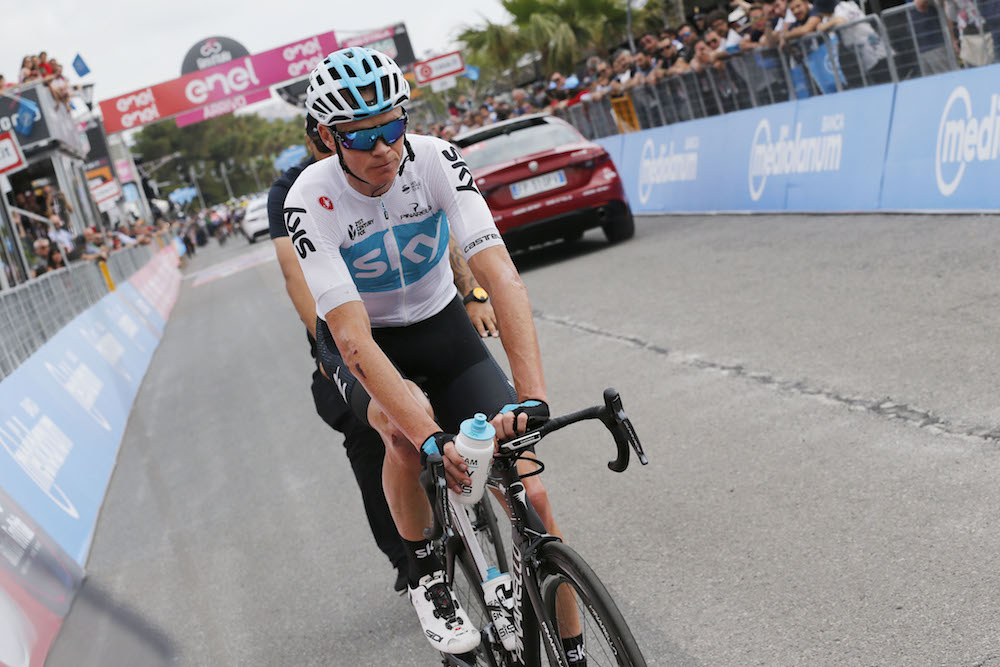
Chris Froome after stage seven of the Giro d'Italia
A major flaw in the World Anti-Doping Agency's (WADA) regulations surrounding salbutamol has been revealed by a scientist who helped to come up with them.
Speaking to The Times on Wednesday, two days after an anti-doping investigation into Chris Froome was dropped after Froome's legal team demonstrated the likelihood of false positives under the current regulations, Professor Ken Fitch explained that the rules as they stand were based on studies of swimmers so do not take into account the dehydration of cyclists after a long race.
"The sport with the highest prevalence was swimming so that’s who we tested," Professor Fitch, from the University of Western Australia, explained.
"But what happens after an hour of swimming? A full bladder. Cycling for five hours is completely different, you have little but quite concentrated urine. And a major error with our studies was that we did not measure the urine for specific gravity."
>>> Chris Froome reveals details of how and why he was cleared in anti-doping investigation
Based on Professor Fitch's study, WADA introduced a dosage limit for salbutamol and other similar drugs of 1,600 micrograms per 24 hours and a "decision limit" of 1,200 nanograms of salbutamol per millilitre of urine, above which an anti-doping investigation would be instigated.
Chris Froome's urine sample taken after stage 18 of the Vuelta a España is thought to have had a salbutamol concentration of 1429ng/ml.
Get The Leadout Newsletter
The latest race content, interviews, features, reviews and expert buying guides, direct to your inbox!
Professor Fitch now says that he made a "terrible blunder" and was "concerned" by cases such as Froome's.
"If I had wanted to clarify the salbutamol levels of athletes in urine after taking the permitted dose, I would have done multiple studies, administering different doses and collecting urine over a period of time, not just once an hour later," Fitch continued.
"A number have been carried out... but they have shown the problem that the metabolism and excretion of salbutamol is capricious."
>>> Everything you need to know about Chris Froome's salbutamol case
Responding to the questions raised about the current regulations surrounding salbutamol, WADA's head of science Dr Oliver Rabin told the Guardian that the organisation had "no reason to question the rules [and] can see no reason that previous cases have not been handled fairly."
However Professor Fitch says that there should be doubt over previous cases involving salbutamol, such as that of Italian sprinter Alessandro Petacchi who served a one-year ban following a test at the 2007 Giro d'Italia.
"Petacchi was innocent," Fitch continued. "They [Wada] have to accept that the rules need changing,”

Thank you for reading 20 articles this month* Join now for unlimited access
Enjoy your first month for just £1 / $1 / €1
*Read 5 free articles per month without a subscription

Join now for unlimited access
Try first month for just £1 / $1 / €1
Henry Robertshaw began his time at Cycling Weekly working with the tech team, writing reviews, buying guides and appearing in videos advising on how to dress for the seasons. He later moved over to the news team, where his work focused on the professional peloton as well as legislation and provision for cycling. He's since moved his career in a new direction, with a role at the Department for Environment, Food and Rural Affairs.
-
 The sun's out and so am I: why there's no shame in being a fair-weather bike rider
The sun's out and so am I: why there's no shame in being a fair-weather bike riderLet's be honest, rain and riding bikes don't mix well – there's nothing wrong with waiting for the sun
By James Shrubsall
-
 FDJ-Suez, SD Worx-Protime, Lidl-Trek confirmed for Tour of Britain Women as strong list of teams announced
FDJ-Suez, SD Worx-Protime, Lidl-Trek confirmed for Tour of Britain Women as strong list of teams announced18 teams set to take part in four-day WorldTour stage race
By Tom Thewlis
-
 Chris Froome is 'keeping the door open' to racing in 2026 - could he ride on?
Chris Froome is 'keeping the door open' to racing in 2026 - could he ride on?39-year-old says his retirement isn't concrete yet
By Tom Davidson
-
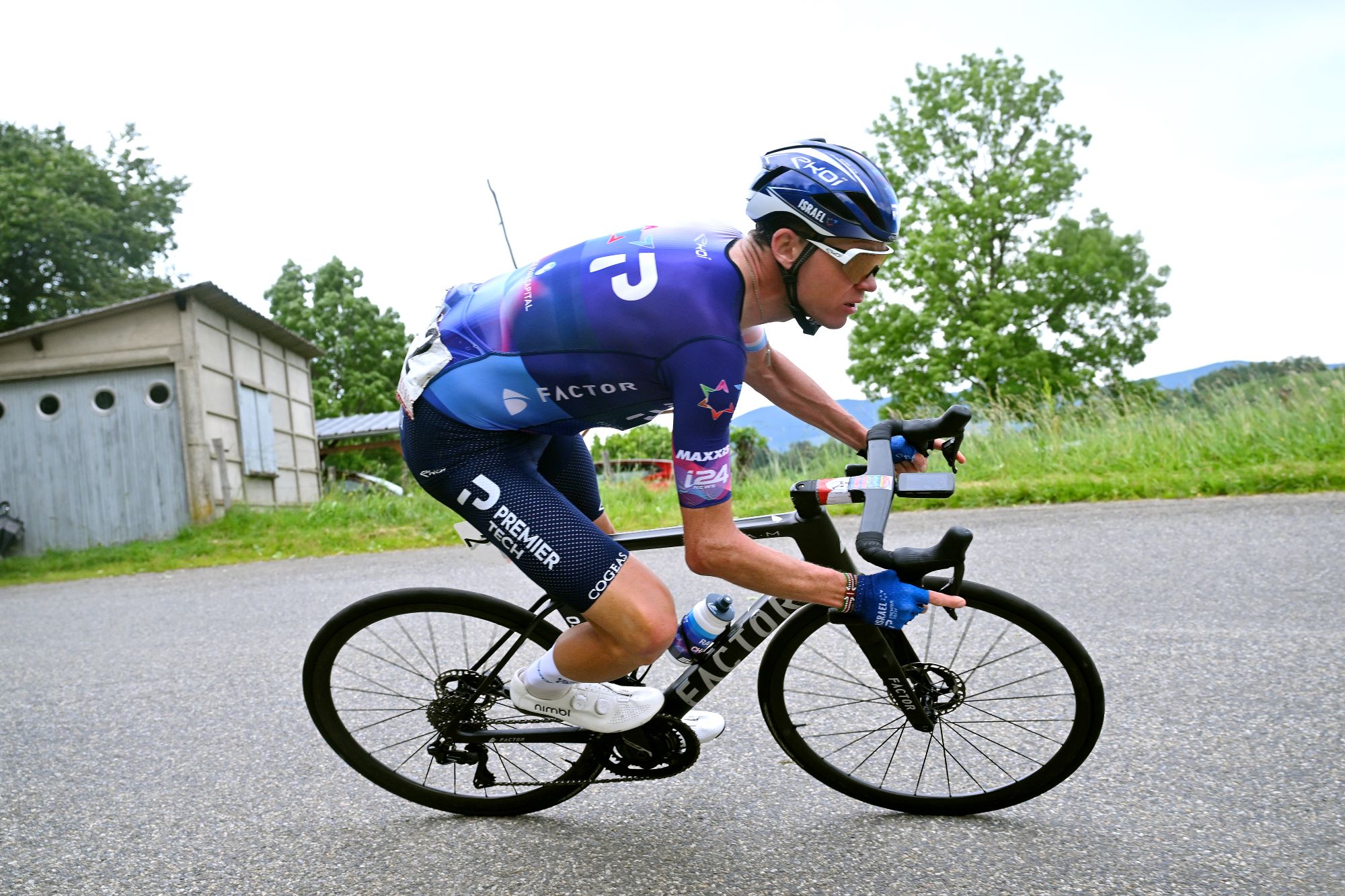 Chris Froome misses out on Tour de France selection
Chris Froome misses out on Tour de France selection39-year-old absent from Israel-Premier Tech's eight-rider roster
By Tom Davidson
-
 A complete history of Ineos Grenadiers kits, from Adidas to Gobik, via Rapha
A complete history of Ineos Grenadiers kits, from Adidas to Gobik, via RaphaThe British team switch to Gobik in 2024 after two years with Bioracer
By Tom Thewlis
-
 Chris Froome's boss rubbishes claims bike fit is behind lack of results
Chris Froome's boss rubbishes claims bike fit is behind lack of results'He can talk about his bike position until the cows come home - that's still not going to earn him a position on a Grand Tour team' says Israel-Premier Tech team owner Sylvan Adams
By Tom Thewlis
-
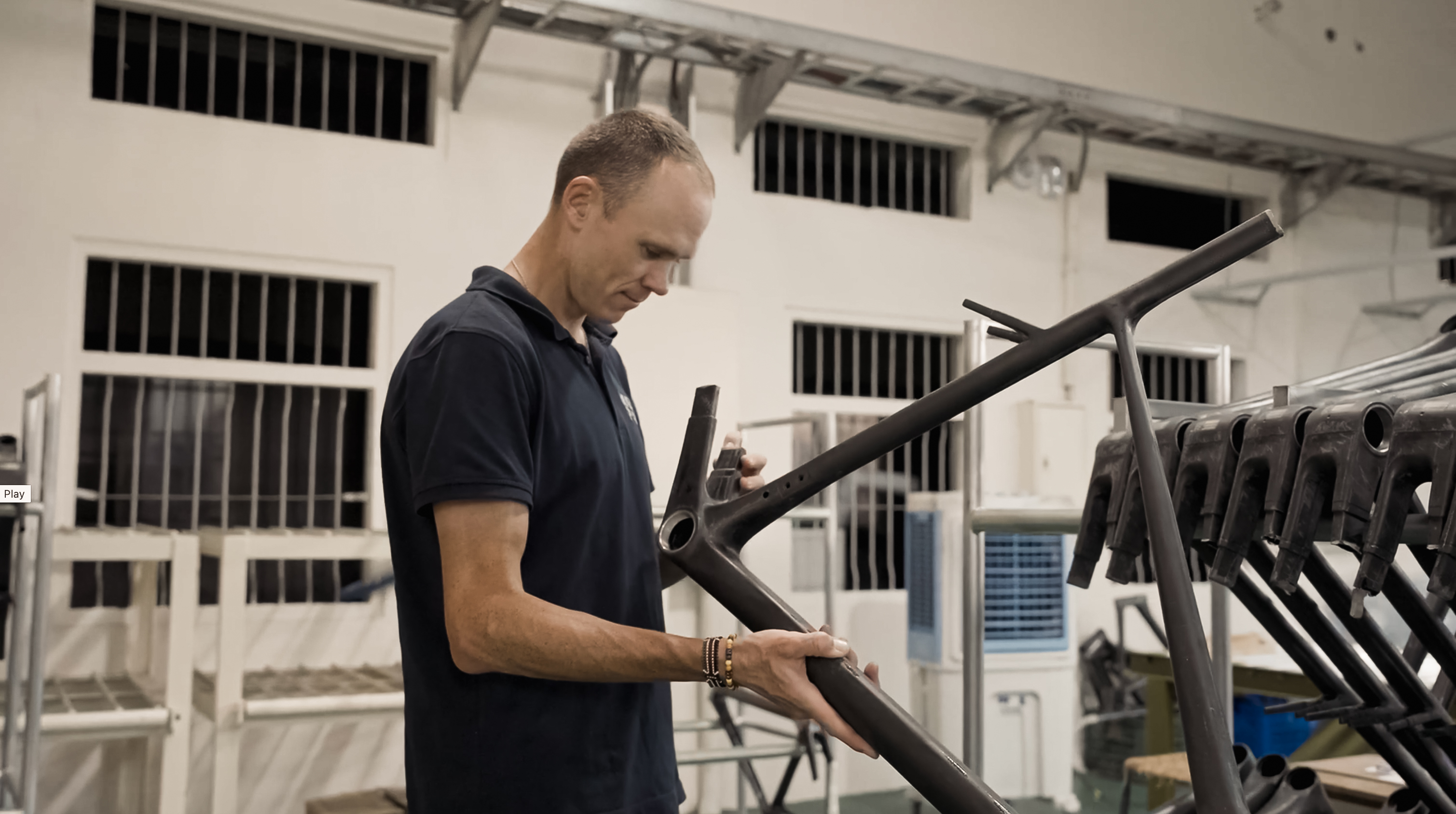 Chris Froome, rim brake evangelist, 'warms to' disc brakes
Chris Froome, rim brake evangelist, 'warms to' disc brakesThe Israel-Premier Tech rider, also an investor at Factor Bikes, says that he has "way less problems" with discs these days
By Adam Becket
-
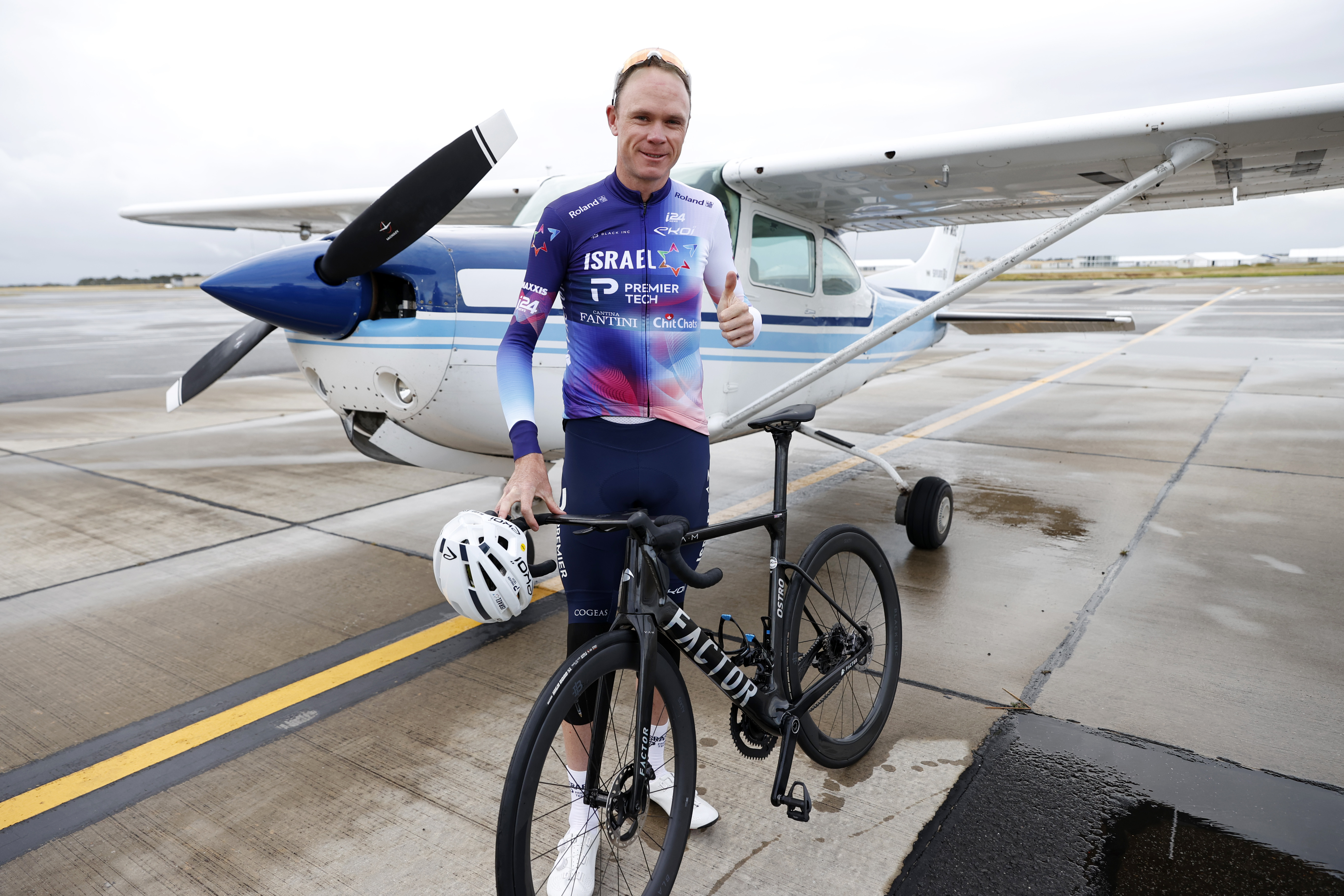 Is Chris Froome - in 2023 - a professional cyclist, or an influencer?
Is Chris Froome - in 2023 - a professional cyclist, or an influencer?The seven-time Grand Tour winner hasn't raced since July, but has taken to being interesting on social media
By Adam Becket
-
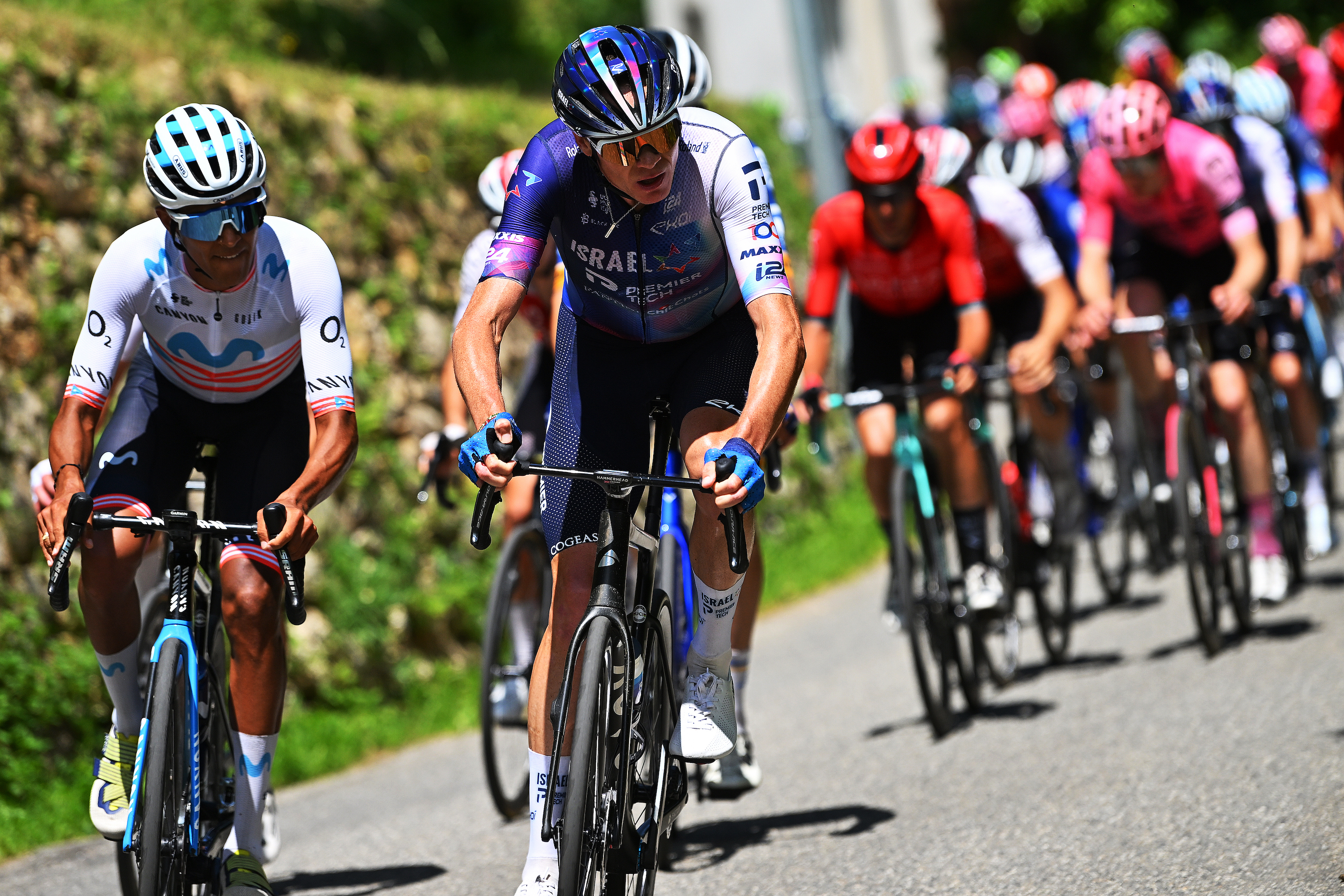 Chris Froome 'absolutely not' worth multi-million euro salary says his team boss
Chris Froome 'absolutely not' worth multi-million euro salary says his team bossThe four-time Tour de France winner was not selected for this year's Tour de France for performance reasons, Israel-Premier Tech boss Sylvan Adams says
By Chris Marshall-Bell
-
 Chris Froome not selected for Tour de France 2023
Chris Froome not selected for Tour de France 202338-year-old misses out on 'ultimate goal' as Israel-Premier Tech confirm eight-man squad
By Tom Davidson